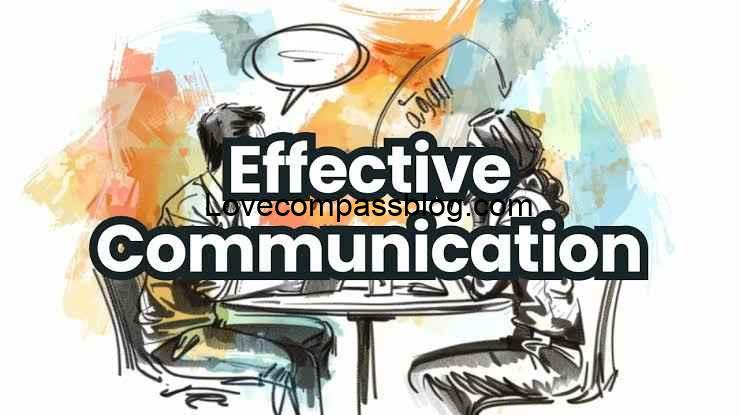Navigating the Challenges of a Relationship with a Large Age Gap

Have you ever found yourself deeply connected to someone whose age falls significantly outside your own? If so, you’re not alone. Many couples find love where they least expect it, and sometimes this happens between partners with a substantial age difference. While these relationships can be incredibly fulfilling, they also come with a unique set of challenges.
In this article, we’ll take an in-depth look into the world of age gap relationships, exploring how partners with significant age disparities can navigate societal perceptions, differences in life stages, and communication barriers to build lasting, loving partnerships. By understanding the nuances and taking the right steps, couples can create strong, resilient relationships despite their age differences.
Age Gap Relationships

What Defines an Age Gap Relationship?
An age gap relationship refers to a romantic partnership where the two people involved have a significant difference in age—typically considered as a gap of 10 years or more. These relationships may involve couples of various age gaps, such as 10-year, 20-year, or even 30-year age differences.
These relationships can occur naturally, sometimes when people connect emotionally or intellectually without considering their age difference. They also occur when individuals actively seek partners outside their immediate age group, whether because of shared life goals or personal attraction to people of a different generation. Whether it’s through deliberate choice or unexpected connection, intergenerational relationships are not uncommon.
Social and Cultural Perceptions of Age Gap Relationships
One of the main obstacles age gap couples face is societal judgment. The social stigma surrounding large age difference relationships can be deeply ingrained, especially in cultures that expect couples to fall within similar age brackets. When age gaps exceed certain thresholds, people might assume the relationship is built on ulterior motives, such as financial benefits or emotional insecurity.
In some parts of the world, an acceptable age gap might be as little as a few years, while in other regions or among different communities, people are more accepting of age-discrepant relationships. This wide range of views often leaves couples dealing with external pressure from society, including their own family and friends. While overcoming this external criticism is never easy, couples who learn to focus on their bond rather than outside perceptions often fare better in the long term.
The Age-Gap Norms: Acceptable vs. Extreme Differences
When discussing acceptable age differences in a relationship, many people point to a general “rule of thumb” that states half your age plus seven years is the minimum acceptable age of a younger partner. While some may refer to this formula as a guide, it’s far from being a hard and fast rule.
For instance, while a 10-year age gap relationship might be accepted as a norm, a 30-year age gap relationship might cause more raised eyebrows, even if the couple is happy and stable. As with most aspects of relationships, what’s truly important is the happiness and mutual respect between the partners, not outside opinions.
Common Challenges in Age-Discrepant Relationships

Emotional Maturity and Life Stages
In age-discrepant relationships, one of the most common challenges stems from the difference in life stages. When there’s a significant age gap between partners, they’re likely experiencing different phases in their personal and professional lives. For example, in a 20-year age gap relationship, one partner might be working hard to build their career, while the other is already settled or looking toward retirement.
These differing life stages can cause friction if not addressed early on. For instance, discussions about having children, career changes, or relocating for work can carry vastly different meanings for someone in their 30s versus someone in their 50s. Successfully navigating these differences requires both partners to understand and respect where the other is in their life journey, as well as compromise on long-term goals and aspirations.
At the heart of these challenges lies the importance of emotional maturity in age-gap relationships. Emotional intelligence, patience, and a willingness to communicate openly about life’s expectations play crucial roles in ensuring these relationships remain harmonious.
Communication Barriers and Misunderstandings
In age-gap couples, communication can be both a strength and a challenge. Generational differences sometimes create communication barriers that aren’t always immediately obvious. For example, partners may use different terminology, have different senses of humor, or have divergent perspectives on technology and social media. These small differences can lead to misunderstandings or frustrations if not addressed.
In 30-year age gap relationships, this challenge can be even more pronounced. Partners may have different approaches to resolving conflicts, discussing emotions, or managing day-to-day tasks. For instance, one partner might prefer face-to-face conversations, while the other might rely on texting or digital communication.
To bridge these potential gaps, it’s crucial for couples to prioritize open communication—both partners need to feel comfortable expressing their thoughts, emotions, and concerns. Listening actively and striving to understand the other’s point of view can prevent minor differences from escalating into larger issues.
Managing Social Judgment and Stereotypes
Beyond personal challenges, age-discrepant couples often face external judgment from friends, family members, and society. The social perceptions of age-gap couples can vary widely, but many people assume that these relationships are inherently unequal. Common stereotypes include assumptions that the younger partner is only in the relationship for financial gain, or that the older partner is trying to reclaim their youth.
These assumptions can take an emotional toll, especially when they come from close family members or friends who question the relationship’s legitimacy. In some cases, couples may even face isolation from their social circles, simply because others don’t approve of their age difference.
To combat this, it’s essential for couples to develop a thick skin and focus on their relationship’s core strengths. Trust and mutual respect are crucial in maintaining the bond between partners, regardless of the social stigma they may encounter.
Relationship Dynamics and Compatibility

Compatibility and Cohesion in Inter-Age Relationships
Compatibility is a key factor in any relationship, but it becomes especially important in age gap relationships. Despite the challenges, many couples find that their differences actually help them form stronger, more balanced partnerships. The older partner may bring wisdom, experience, and emotional stability, while the younger partner brings energy, curiosity, and a fresh perspective on life.
Couples with large age differences often complement each other in unexpected ways. For example, while the older partner might have more experience managing finances, the younger partner might be more in tune with new trends or technology. This balance of strengths can create a dynamic relationship where both partners learn and grow together.
However, for these relationships to thrive, compatibility beyond age is crucial. Shared values, life goals, and emotional connection are often the glue that holds age-gap couples together. When these foundations are strong, the age difference becomes a secondary consideration.
Age Gap Romance and Psychology
The psychology of age-gap relationships is an intriguing field, as it challenges many of society’s preconceived notions about what makes a relationship successful. While some people may view age-discrepant relationships with skepticism, research shows that these relationships can be just as fulfilling—if not more so—than those between partners of similar ages.
One key factor in the success of these relationships is the partners’ ability to navigate their emotional and psychological differences. In some cases, the older partner may take on a mentoring role, providing guidance and stability to the younger partner. Conversely, the younger partner may inspire the older one to embrace new experiences and perspectives.
It’s common for people to ask, “Can a 20-year age gap relationship work?” The answer depends largely on the couple’s ability to communicate effectively and respect each other’s experiences. Ultimately, relationship success rates in age-gap romances depend on the emotional maturity of both partners and their commitment to overcoming the challenges that arise.
Managing Expectations and Power Dynamics
In age-discrepant relationships, it’s important to acknowledge the potential for unequal power dynamics. The older partner may have more life experience, financial stability, or social influence, which can unintentionally lead to an imbalance in the relationship.
Both partners should be aware of this dynamic and work to ensure that decisions are made jointly, and that both partners feel valued. Mutual respect and equality are crucial in avoiding a situation where one partner dominates the relationship.
Benefits of Age Gap Relationships

Unique Strengths of Age Gap Couples
Despite the challenges, age gap relationships offer a number of unique benefits. Partners from different generations often bring complementary skills, perspectives, and experiences to the relationship. The older partner may provide wisdom, emotional stability, and life experience, while the younger partner offers energy, enthusiasm, and a fresh outlook on life.
Many couples in age-discrepant relationships find that their differences actually enhance their relationship, allowing them to grow and learn from each other. Their diverse life experiences can lead to deeper conversations and a more profound emotional connection.
Real-Life Success Stories of Age Gap Couples
While it’s easy to focus on the challenges, many age-gap couples have found lasting success. From celebrities to everyday people, there are countless examples of couples with significant age differences who have built long-term, fulfilling relationships. These couples often attribute their success to mutual respect, open communication, and a willingness to embrace each other’s differences.
By focusing on their shared values and emotional connection, couples in age-discrepant relationships can overcome societal judgments and build strong, lasting partnerships.
How to Handle the Challenges of a Relationship with a Large Age Gap

Communication Strategies for Age-Disparate Couples
Effective communication is essential for any relationship, but it’s especially important in age-disparate couples. Open, honest dialogue about expectations, concerns, and future goals is key to bridging the gap between partners of different ages. For couples with a significant age difference, it’s important to regularly check in with each other to ensure both partners feel heard and valued. Communication strategies such as active listening, practicing empathy, and asking clarifying questions can go a long way in resolving potential misunderstandings. For example, the older partner may feel the need to slow down in certain areas of life, while the younger partner might want to explore more adventurous paths. Regularly discussing these concerns ensures that neither partner feels left behind or overwhelmed by the other’s pace.
Additionally, non-verbal communication—such as body language and physical affection—plays a crucial role. When verbal communication hits a rough patch, non-verbal cues often speak volumes and can help partners feel emotionally connected despite their differences.
Aligning Long-Term Life Goals
One of the biggest hurdles in age gap relationships is ensuring that long-term goals align. It’s critical for couples to discuss these goals early in the relationship. Do both partners want to have children? If so, what’s the timeline for that? Or, if one partner has already raised children, are they open to doing it again?
For couples with a 20-year age gap or more, this may involve difficult conversations about retirement, healthcare, and end-of-life planning. The older partner might want to settle into retirement, while the younger one could still be focused on career development or starting a family. Aligning on these key life decisions can help mitigate potential long-term friction and ensure that both partners are on the same page when it comes to their future together.
To facilitate these discussions, couples may benefit from sitting down with a financial advisor or relationship counselor, who can help guide these long-term conversations in a productive manner.
Addressing External Judgment: Friends, Family, and Society
Dealing with the judgment of friends, family, or society is often one of the most emotionally challenging aspects of age-discrepant relationships. Comments or questions from others can range from mild curiosity to outright criticism. While it’s natural to feel defensive, it’s important to handle these situations with grace and confidence.
One approach is for both partners to present a united front when discussing their relationship with others. Setting boundaries with well-meaning but intrusive friends or family members can help prevent undue stress. For instance, politely but firmly explaining that the age difference is not up for discussion can discourage people from bringing it up.
In many cases, educating others about the strength of your relationship and why it works for you can shift their perspective over time. Some couples find it helpful to limit interactions with people who continually bring negativity into their relationship, focusing instead on surrounding themselves with supportive and understanding individuals.
Navigating Public Perception and Media Influence
The media portrayal of age gap relationships often adds another layer of complexity. Celebrity couples with large age gaps are frequently scrutinized, with tabloids questioning the validity of their partnerships or labeling them as purely transactional. These negative portrayals can bleed into everyday perceptions of such relationships, making it harder for real-life couples to gain societal acceptance.
Couples can address these challenges by openly discussing how public perception impacts them. Maintaining a strong sense of self and focusing on what works within the relationship—rather than external opinions—helps build resilience. Developing this thick skin allows couples to brush off superficial judgments and focus on nurturing their bond.
Overcoming Potential Power Imbalances
Establishing Equality in Decision-Making
An important aspect of maintaining balance in age-gap relationships is ensuring both partners feel equal when it comes to decision-making. While the older partner may have more experience in certain areas, such as finances or major life decisions, this should not undermine the younger partner’s input.
To foster a sense of equality, couples can create a framework where major decisions—such as purchasing a home, managing money, or deciding on a travel destination—are made together. Establishing shared responsibilities allows both partners to feel empowered and ensures that one person doesn’t dominate the relationship.
For example, if the older partner is more financially established, they could handle investments, while the younger partner may focus on planning day-to-day expenses or vacations. This balance encourages a collaborative environment where each person contributes equally in their own way.
Acknowledging Financial Disparities
Financial inequality is another potential challenge in age-discrepant relationships. The older partner may have already accumulated wealth or reached financial stability, while the younger partner could still be building their career. This disparity can sometimes lead to feelings of insecurity or dependence, particularly if one partner is supporting the other financially.
To manage these dynamics, couples should have open discussions about money early on. Financial transparency is key to ensuring that both partners feel comfortable with how resources are being shared or managed. Agreeing on how expenses will be divided—whether equally or based on income differences—prevents misunderstandings and builds trust.
Building a Strong Foundation for Success

Maintaining Mutual Respect and Emotional Support
At the heart of any successful relationship is mutual respect, and this is especially important in age-gap couples. When respect is present, age becomes a secondary consideration. Both partners need to feel valued for who they are as individuals, not just for the roles they play within the relationship.
Additionally, emotional support plays a significant role in keeping a relationship healthy, regardless of age difference. Partners should be willing to listen, offer encouragement, and provide comfort during difficult times. These emotional connections are often what sustain age-gap couples through the inevitable challenges they face, whether they stem from internal dynamics or external pressures.
Embracing Shared Interests and Creating New Experiences
Couples with large age differences can further strengthen their bond by focusing on shared interests and creating new experiences together. This might involve exploring hobbies, travel, or even learning from each other’s areas of expertise. By focusing on common goals and values, the age gap becomes less significant, and the relationship becomes more about the shared journey the couple is on.
For instance, the younger partner might introduce the older one to new technology or modern entertainment, while the older partner may bring cultural experiences, traditions, or wisdom that enrich the younger partner’s worldview. These mutual exchanges foster growth and deepen the emotional connection between partners.
Conclusion
Age gap relationships are not without their challenges, but for those willing to put in the effort, they can be incredibly rewarding. By addressing potential hurdles such as differing life stages, communication barriers, and social judgments, couples can build a strong, lasting bond that defies societal expectations. At the core of any successful relationship, regardless of age, lies mutual respect, emotional connection, and a commitment to understanding and supporting one another.
If you find yourself in an age-discrepant relationship, remember that every partnership is unique. While external opinions may waver, what truly matters is the strength of the relationship you build together. Embrace your differences, celebrate your love, and trust in your ability to navigate life’s ups and downs as a team. Now that you know this, go forward with confidence, knowing that age is only a number when two people are committed to building something meaningful together.





